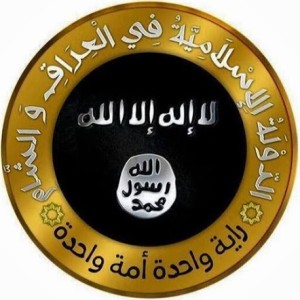Deconstructing the rise of ISIS
 Although ISIS and its recent developments are at the centre of attention throughout the mainstream media, by and large, they have failed to analytically assess the rise of ISIS within the Iraqi context.
Although ISIS and its recent developments are at the centre of attention throughout the mainstream media, by and large, they have failed to analytically assess the rise of ISIS within the Iraqi context.
Funding
It is a known secret that, in its nascent stages, ISIS was heavily dependent upon support from ‘wealthy individuals in the Arab Gulf States of Kuwait, Qatar and Saudi Arabia’. Although the Saudi government formally outlawed private donations to ISIS in March, it is noteworthy that one of Saudi Arabia’s most astute counter-terrorism tactics is its ability to monitor the formal financial sector to block suspect donations – implying tacit support of support to ISIS-like groups in Syria and Iraq. In fact, relative instability in the region (Libya, Syria, Iraq) actually benefits the oil producing Gulf states, as evidenced by the spike in oil prices as Brent oil reached $114.02 a barrel whilst they ‘remain committed to meeting oil market demand’. Moreover, as the Gulf’s geopolitical competitors - Syria, Iraq and Iran - are weakened by conflict and sanctions, the Gulf (and Gulf capital) is able to retain its regional economic and political supremacy. However, Gulf states are not throwing their full weight behind a volatile group such as ISIS for various reasons: long-term security, U.S. pressure and Gulf capital’s need to expand into areas that implement stable, neoliberal policies (eg. Saudi Arabia’s support for Sisi).
In light of recent events, private donations to ISIS have clearly diminished in importance as their revenue is generated by activities such as the smuggling of oil and weapons, extortion, and loot from conquest - $420 million from Mosul’s central bank. Aside from the ideological and religious rhetoric, ISIS is focussing on reinforcing their independent revenue stream, evidenced by its determination to capture the Baiji refinery (Iraq’s biggest refinery), the Haditha refinery, the Qaiyarah and Hamrah oilfields, and the Turkey-Iraq Pipeline.
ISIS within the Iraqi context
Although material support was and remains crucial to the rise of ISIS, we must look beyond this, towards the structural forces at play within Iraq that allowed this group to ‘flourish’. After the US invasion of 2003, Iraq’s economy was completely restructured along neoliberal lines: foreign investors were given equal rights with Iraqis in the domestic market, a flat tax system was imposed alongside cuts in food and fuel subsidies, and arguably most importantly, the removal of the Iraqi people’s collective ownership of Iraq’s oil. The new oil laws were based on the constitution, which reinforces sectarian lines by permitting provinces to form “autonomous regions”. Unemployment rose to 60% and more than 5 million people were living in poverty. Naturally, there was a movement away from the state and towards religious communities for welfare and protection. As Al-Maliki’s government systematically normalized sectarianism into Iraqi politics to deflect economic and social tensions, he marginalized Sunnis as Shiites dominated government jobs, he refused to share vast oil revenues with Sunni constituents, and the largely Shiite military often humiliated Sunnis by putting up Shia insignia and frisking them at checkpoints. In essence, many Sunnis felt they were living under Shiite occupation.
Hence, ISIS, in the midst of all this turmoil were able to capitalize on this discontent, and not – according to mainstream media – appear out of nowhere. In fact, from 2012–2014, Iraq experienced large-scale mass protests from mostly Sunni groups demanding social justice against corruption and discrimination. However, Al-Maliki’s government brutally cracked down on these largely peaceful protests, which naturally led the marginalized to turn to more radical, violent, and ultimately, sectarian tactics. That being said, ISIS does not have popular support (the overwhelming majority of Sunnis support inclusive secular politics), and were only able to capture certain cities with the aid of Sunni tribes, and ironically, ex-Baathists. In some instances, local Sunni groups have actually helped the Iraqi army reassert itself and celebrated the departure of ISIS.
Despite the media frenzy surrounding ISIS, we must resist the temptation to focus on the static Sunni-Shiite sectarian dichotomy and emphasis on private donations, and instead, turn towards a richer political economy, historical materialist and class-based approach that demonstrates how Sunnis in Iraq – once an elite – have been transformed into an underclass.
